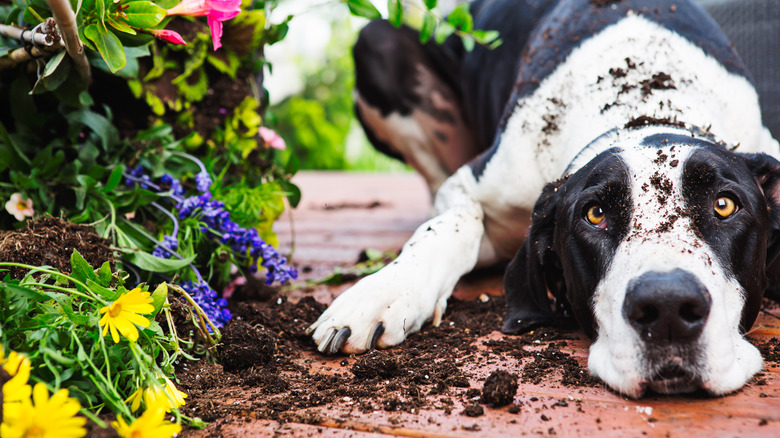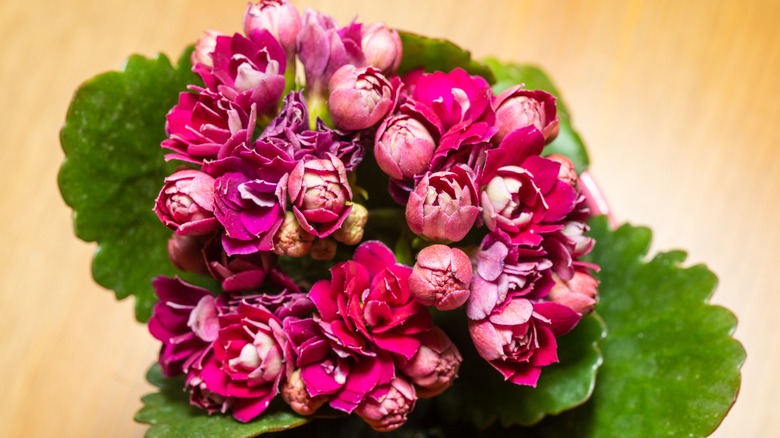Avoid Growing This Flowering Succulent In Your Home Or Garden If You Own Pets
Succulents can add so much interest to your houseplant collection. Kalanchoe plants are known as one of the best succulents to grow indoors because their attractive appearance and low maintenance needs. Calandiva, the flowering species of the Kalanchoe family, can be grown outdoors in USDA hardiness zones 10 and 11 and is also great as an indoor plant. Its beautiful colors can accent any space. Unfortunately, calandiva and all species in this plant family should be avoided if you have animals around because they are poisonous and toxic to your pets. It is most toxic to dogs, but poisoning has also been seen in cats, rabbits, reptiles, and even chickens.
Calandiva comes in shades of white, pink, orange, red, and purple, which can add some color to your plant collection. It also blooms beautifully in the winter and is one of those plants that thrive in dry conditions. But be careful when adding it to your home as it can harm your animals.
Calandiva is toxic to animals
The calandiva plant can bring about severe reactions in animals when ingested. The harmful compounds affect the gastrointestinal, cardiac, and nervous systems, and can cause seizures and cardiac arrest. If you already have this plant in your home, the first step is to move it out of reach of your pets. If you do suspect they have ingested the plant, keep an eye out to see if your animal is weak, drooling, breathing strongly, vomiting, having diarrhea, or having seizures. Take them to the vet immediately if you notice these symptoms.
If you still want to have this flowering succulent in your collection, you need to keep it out of reach from your pets. Consider placing your calandiva on a high shelf. Wall-mounted planters and hanging planters are also a great option for safely showing off this attractive plant. When planted outside, choose a tall, raised garden bed. To deter animals, erect a strong barrier around the plant, install sprinklers, or apply unpleasant smells around the area. Cats don't like citrus smells and dogs don't like pepper or vinegar, so you can make DIY repellent sprays. Still, this requires a lot of application and observation on your part, so you may want to choose different, animal-friendly plants. For outdoor flowers, consider marigolds and dahlias. Indoors, opt for non-toxic houseplants like Christmas cactus or African violets for beautiful blooms. Though it doesn't flower, the zebra haworthia is a great pet-safe succulent.

